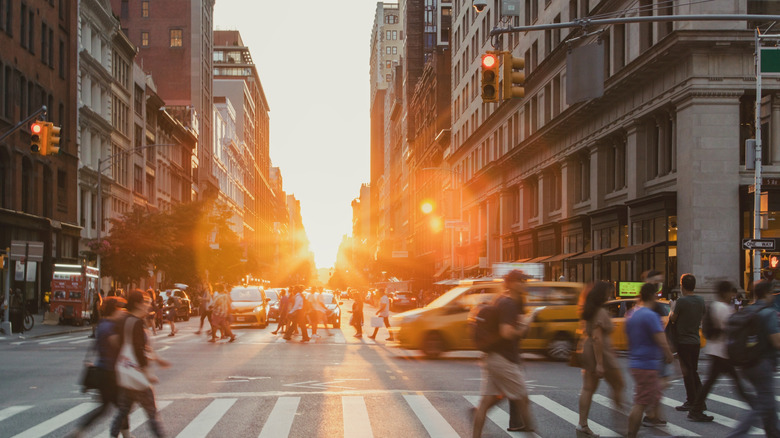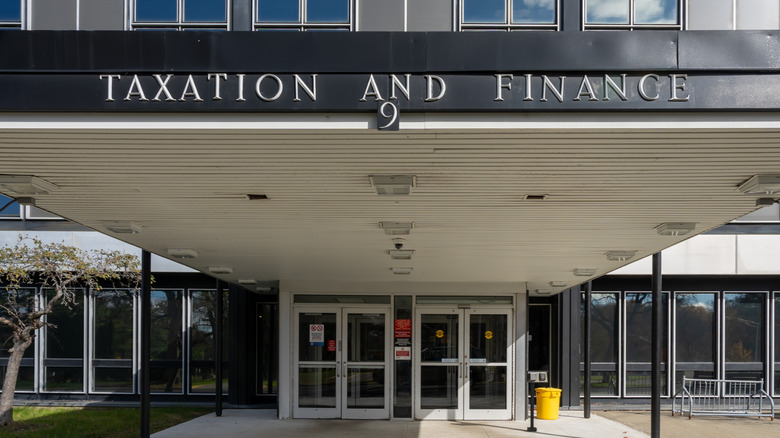Inflation Refund Checks Will Soon Be In The Mail For Over 8 Million New Yorkers
After factoring in the cost of housing, groceries, utilities and transportation and health in the second quarter of 2025, New York was ranked as the fifth most expensive region in the U.S., according to Council for Community & Economic Research (C2ER) survey data, per Missouri Economic Research and Information Center. However, despite being one of the most expensive states in the country to live in, New York is now sending out refund checks — with the first round of checks due to be mailed at the end of September 2025.
Per the office of Governor Kathy Hochel, the purpose of these refund checks is to help offset inflation and the rising cost of living throughout New York. Checks will go out to about 8.2 million full-time New York residents who filed tax returns in 2023. – the most recent complete tax year available. These refund checks are part of the state's $254.3 billion 2025-2026 budget, which was approved in May 2025, and are estimated to be costing the state budget $2 billion.
What to know about these refund checks
But how much money can a New York resident expect to receive? The checks will range from $150 to $400, with the largest $400 checks going to married couples who filed jointly and earned $150,000 or less. Married couples who filed jointly and earned between $150,000 and $300,000 will get $300. A single filer who earned $75,000 or less will receive $200, while single filers who made between $75,000 and $150,000 will get $150. However, not every New Yorker will qualify to receive a refund payment. Eligible recipients must have been full-time residents during 2023, and have filed a New York State Resident Income Tax Return with a total income below $300,000 in order to receive one of these checks.
It's also important to realize that, unlike Social Security's recent payment change, these checks will be mailed to the last known address the state has on file. Also, residents in certain geographic areas of the state will receive their checks earlier than others. The refund will also not be applied to any outstanding debts you might have with the state, which can be a good or bad thing depending on your perspective. However, with FICO's recent reveal of America's falling credit score, it wouldn't be a bad idea to use the extra money to pay off some debt and raise your own credit score while you're at it.

